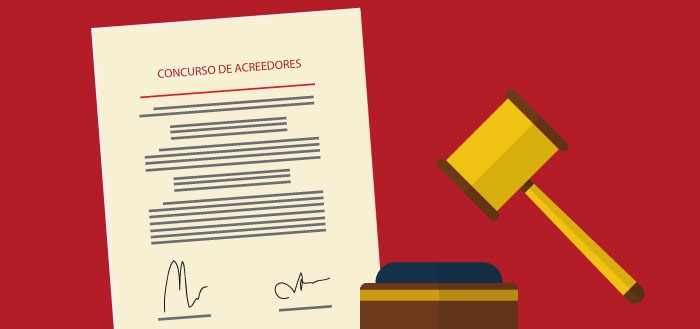Detecting whether a company has entered insolvency proceedings can be crucial to making informed decisions as an investor, supplier, worker or consumer. The increase in insolvencies in certain sectors in recent months - such as construction, retail and technology start-ups - has put the spotlight on the need for reliable public information on the financial health of companies.
What does it mean when a company is in insolvency proceedings?
When a company is unable to pay its debts and enters into a debt distress insolvency situation, may apply for (or be obliged to apply for) court proceedings for insolvency proceedings. This process seeks to protect the value of the company and establish a payment order for its debts, either through a restructuring plan or liquidation. We tell you when a company can file for insolvency proceedings.
How do I know if a company is in insolvency proceedings?
1. Consult the Public Register of Insolvency
It is the most reliable official and free source.
- Go to: https://www.publicidadconcursal.es
- Enter your company name or VAT number
- Check whether it is listed as “bankrupt”, the date, court and status of the proceedings.
2. Check the Official State Gazette (BOE)
Any declaration of bankruptcy is published by law in the BOE.
- Official website: https://boe.es
- Use the search engine by keyword or court order number.
3. Consult the Commercial Register
You can also apply for a nota simple at the Mercantile Register of the province where the company has its registered office.
4. Private business reporting platforms
Websites such as eInforma, Infoempresa or Axesor offer detailed business information, although they are fee-based.
5. Indirect warning signs
- Systematic delays in payments
- Sudden changes in direction or structure
- Ambiguous communications or lack of response
- Suspension of commercial activity or inactive website
What to do if my customer or supplier is in insolvency proceedings?
If you are supplier, creditor or worker, These are the key steps:
- Communicate your credit to the insolvency administrator within the deadlines set by the order (normally 1 month from publication).
- Collects and retains all documentationinvoices, contracts, mailings.
- Avoid continuing to supply goods or services without guarantees.
- Consultation with specialist lawyers to assess your legal position and chances of recovery.
Where to get legal advice on insolvency?
Having a specialised law firm is key to protecting your rights in the event of bankruptcy or pre-bankruptcy. At Martínez Sanz Lawyers, experts in commercial law and bankruptcy proceedings, they offer comprehensive advice for affected companies and self-employed persons.
More information:



